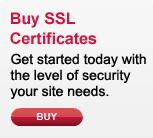News
Top strategies for protecting business data: The basics explained
Today's businesses have more sensitive information to protect than ever. All sensitive data connected with company projects and offerings, employee and customer personal information and beyond needs to be safeguarded against malicious hackers. Any content that could be valuable in the hands of the competition, or which could be leveraged for fraudulent purposes should be secured.
However, this can quickly become an overwhelming task if decision-makers are not aware of industry best practices for data security. To help, here are a few of the basics when it comes to information protection:
Identify materials in need of protection
The first step in these efforts is to identify content - documents, databases, etc. - that need to be protected. In the current environment, it is simply far too expensive to employ a wholesale security approach where every resource is equally safeguarded, noted data center security provider Imperva. For this reason, decision-makers should work with managers and employees to identify sensitive data that requires safeguarding measures.
Leverage authentication credentials
For the best oversight of important resources and information that could be at-risk of being compromised, administrators should set up unique authentication credentials for each person at the organization. In these regards, using robust and multiple different passwords for each access point is critical for best data safety. Oftentimes, employees use passwords that are easy for hackers to guess or narrow down with a dictionary attack. By using longer, more complex codes with upper and lower case letters, numbers and special characters can prevent intrusion.
Encrypt sensitive data
When decision-makers have identified the content that is in need of security measures, much of these materials can be protected with encryption technology. The Wall Street Journal noted that financial information in particular can benefit from encryption. However, this approach is advantageous in a number of functions.
"Encryption is also important for protecting a company's internal information - personal files, financial accounts and product information and other data," The Wall Street Journal stated. "It can foil a hacker who has gotten into the company's computer system but can't decipher the information."
Monitor everything
As cybercriminals will sometimes exploit an innocuous source to gain access to more juicy information, organizations should seek to leverage monitoring software on every device and system they can. Imperva calls this strategy "monitoring the good, the bad and the privileged," where everything from open resources available to everyone to content only available to C-level executives is monitored.
Drive it home with employee training
Once all protection measures have been put in place, administrators should polish off their security efforts with employee training. During these meetings, supervisors can explain each person's role in the business and how their actions can make or break these safeguarding measures.
"Sure, hackers can access your network remotely and siphon off data without setting foot in your office," stated technology evangelist Ramon Ray. "However, vigilant employees (consultants, partners and vendors, too) can ensure that human error - which is a big cause of data security breaches - is minimalized."
Protect data in transit with an SSL certificate today.


 Email
Email
